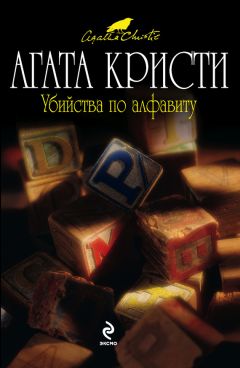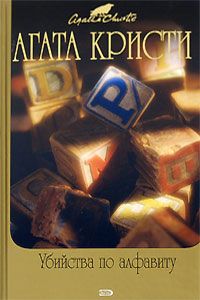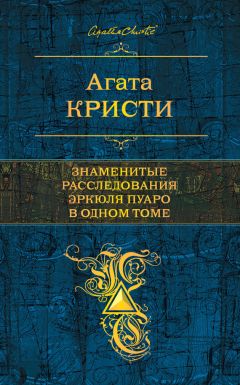Agatha Christie - Английский язык с Агатой Кристи. Убийства по алфавиту
"And of the letters we have still no explanation," said Poirot (и письмам мы все еще не имеем объяснения).
"That interests you (это интересует вас)?"
"Naturally (естественно) — since they were written to me (так как они были написаны мне). And on the subject of the letters Cust is persistently dumb (а по /поводу/ содержания писем Каст упорно молчит: «настойчиво молчалив»). Until I get at the reason for those letters being written to me (пока я не найду причину, по которой эти письма были написаны мне), I shall not feel that the case is solved (я не буду чувствовать, что этот случай разрешен; case — случай; юр. дело)."
explanation [ˌekspǝˈneɪʃ(ǝ)n], persistently [pǝˈsɪstǝntlɪ], dumb [dʌm]
"However, I'm against the theory that Cust committed these crimes without knowing he'd done them. You might put that theory forward if it weren't for the letters. The letters knock the theory on the head. They show premeditation and a careful planning of the crime."
"And of the letters we have still no explanation," said Poirot.
"That interests you?"
"Naturally — since they were written to me. And on the subject of the letters Cust is persistently dumb. Until I get at the reason for those letters being written to me, I shall not feel that the case is solved."
"Yes — I can understand that from your point of view (я могу понять это с вашей точки зрения). There doesn't seem to be any reason to believe (кажется, нет причины верить) that the man ever came up against you in any way (что этот человек когда-либо сталкивался с вами каким-либо образом; to come up against — сталкиваться, встречаться)?"
"None whatever (никаким совершенно; whatever — какой бы ни; любой; /в отриц. предложениях/ никакой, совсем не, вообще не)."
"I might make a suggestion (я мог бы сделать преположение). Your name (ваше имя)!"
"My name (мое имя)?"
"Yes. Cust is saddled apparently by the whim of his mother (Каст, по-видимому, обременен по капризу его матери) — (Oedipus complex[46] there), I shouldn't wonder (неудивительно: «я не стал бы удивляться»)!) — with two extremely bombastic Christian names (двумя совершенно помпезными именами; christian name — имя, данное при крещении): Alexander and Bonaparte (Александр и Бонапарт). You see the implications (вы видете следствие)? Alexander — the popularly supposed undefeatable (всеобще признан непобедимым; to defeat) who sighed for more worlds to conquer (который мечтал завоевать весь мир: «который тосковал, чтобы завоевать больше миров»). Bonaparte (Бонапарт) — the great Emperor of the French (великий французский император). He wants an adversary (он желает противника) — an adversary (противника), one might say in his class (можно сказать, своего класса). Well — there you are (и вот тут есть вы) — Hercules the strong (Геркулес сильный)."
christian [ˈkrɪstjǝn], Oedipus [ˈi:dɪpǝs], adversary [ǝdˈvǝ:sǝrɪ]
"Yes — I can understand that from your point of view. There doesn't seem to be any reason to believe that the man ever came up against you in any way?"
"None whatever."
"I might make a suggestion. Your name!"
"My name?"
"Yes. Cust is saddled apparently by the whim of his mother — (Oedipus complex there, I shouldn't wonder!) — with two extremely bombastic Christian names: Alexander and Bonaparte. You see the implications? Alexander — the popularly supposed undefeatable who sighed for more worlds to conquer. Bonaparte — the great Emperor of the French. He wants an adversary — an adversary, one might say in his class. Well — there you are — Hercules the strong."
"Your words are very suggestive, doctor (ваши слова очень наводят на мысли, доктор). They foster ideas (они питают представления) — "
"Oh, it's only a suggestion (это только предположение). Well, I must be off (мне нужно идти; to be off — уходить)."
Dr. Thompson went out (доктор Томпсон вышел). Japp remained (Джепп остался).
"Does this alibi worry you?" Poirot asked (это алиби беспокоит вас?).
"It does a little," admitted the inspector (/беспокоит/ немного, — признался инспектор). "Mind you (имейте в виду), I don't believe in it (я не верю в него), because I know it isn't true (потому что я знаю, что это не правда). But it is going to be the deuce to break it (но только дьявол разобьет его: «но это собирается дьявол разбить его»). This man Strange is a tough character (этот человек Стрейндж — крепкий орешек: «тип с крутым /нравом/»)."
"Describe him to me (опишите его мне)."
foster [ˈfɔ:stǝ], deuce [dju:s], tough [tʌf]
"Your words are very suggestive, doctor. They foster ideas —"
"Oh, it's only a suggestion. Well, I must be off."
Dr. Thompson went out. Japp remained.
"Does this alibi worry you?" Poirot asked.
"It does a little," admitted the inspector. "Mind you, I don't believe in it, because I know it isn't true. But it is going to be the deuce to break it. This man Strange is a tough character."
"Describe him to me."
"He's a man of forty (он мужчина лет сорока). A tough (твердый), confident (уверенный), self-opinionated (имеющий собственное мнение) mining engineer (горный инженер). It's my opinion (по-моему: «это мое мнение») that it was he (что это был он) who insisted on his evidence being taken now (кто настоял, чтобы его свидетельство было принято сейчас). He wants to get off to Chile (он хочет уехать в Чили). He hoped (он надеялся) the thing might be settled out of hand (что все может уладиться немедленно; of hand — немедленно)."
"He's one of the most positive people I've ever seen," I said (он один из самых самоуверенных людей, которых я когда-либо видел; positive — позитивный; самоуверенный).
"The type of man (тип человека) who would not like to admit (который не захочет признать) he was mistaken (что он ошибался)," said Poirot thoughtfully (сказал Пуаро задумчиво; to mistake — делать ошибку).
Chile [tʃaɪl], engineer [ˌenʤɪˈnɪǝ], positive [ˈpɔzɪtɪv]
"He's a man of forty. A tough, confident, self-opinionated mining engineer. It's my opinion that it was he who insisted on his evidence being taken now. He wants to get off to Chile. He hoped the thing might be settled out of hand."
"He's one of the most positive people I've ever seen," I said.
"The type of man who would not like to admit he was mistaken," said Poirot thoughtfully.
"He sticks to his story (он придерживается своей истории/настаивает на своей истории; to stick — липнуть) and he's not one to be heckled (и он не такой, /кого/ можно закидать вопросами; to heckle — трепать, чесать лен; прерывать, забрасывать вопросами /исполнителя, оратора/). He swears by all that's blue (он клянется всеми чертями; by all that's blue! — черт побери!; blue — голубой, синий; непристойный) that he picked up Cust in the Whitecross Hotel at Eastbourne on the evening of July 24th (что он познакомился с Кастом в отеле «Белый крест» в Истборне вечером двадцать четвертого июня; to pick up — подбирать; знакомиться). He was lonely (ему было одиноко) and wanted someone to talk to (и /он/ хотел с кем-нибудь поговорить). As far as I can see (насколько я могу понять), Cust made an ideal listener (Каст оказался идеальным слушателем). He didn't interrupt (он не прерывал)! After dinner he and Cust played dominoes (после обеда он и Каст играли в домино). It appears (оказывается) Strange was a whale on dominoes (Стрейндж был настоящий мастер в игре домино; whale — кит; знаток, мастак) and to his surprise (и к его удивлению) Cust was pretty hot stuff too (Каст был тоже был не промах: «Каст был довольно горячей штучкой тоже»). Queer game, dominoes (странная игра домино). People go mad about it (люди с ума по ней сходят). They'll play for hours (они играют часами). That's what Strange and Cust did apparently (это то, что, по-видимому, делали Стрейндж и Каст).




